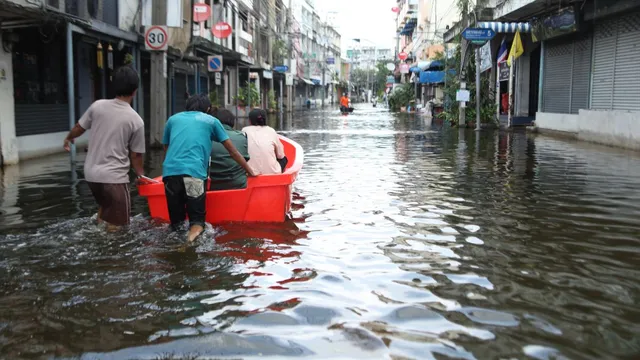- By Prerna Targhotra
- Tue, 02 Jul 2024 02:04 PM (IST)
- Source:JND
Common Water-Borne Diseases: The monsoon season has brought an abundance of cheer and relief from the excruciating heat. The monsoon weather is a more pleasant and restorative season than others. While it's a lovely season that provides much-required relief from the blazing heat, it also carries with it a plethora of illnesses and ailments.
From dengue and malaria to the common cold and flu, rainy weather can wreak havoc on our health. Therefore, it is extremely important to be vigilant and prepared beforehand to prevent any infections. Here is a list of some most common water-borne illnesses and simple ways that you can adopt to prevent them.

Common Water-Borne Diseases
Malaria
Malaria is one of the most common water-borne illnesses that is caused by a parasite that infects a certain type of mosquito. It can be a deadly disease if it is not diagnosed or treated early. Some common signs and symptoms of malaria include fever, sweating, chills, headache, muscle aches, fatigue, chest pain, nausea and vomiting.
To prevent malaria, apply mosquito repellent, drape mosquito nets over your bed put screens on doors and windows and wear long pants and long sleeves to cover your skin.
ALSO READ: Warning Signs Of Dengue Fever: 7 Serious Symptoms Of This Water-Borne Disease To Not Avoid
Dengue
Dengue is caused by dengue virus and if symptoms appear they typically begin 3 to 14 days after infection. Severe dengue can be life-threatening within some hours of the infection, therefore prevention is important. Dengue comes with certain symptoms that include abdominal pain or tenderness, persistent vomiting, clinical fluid accumulation, mucosal bleeding and lethargy or restlessness.
To prevent dengue infection, use insect repellents, wear loose-fitting, full-sleeved clothes and take precautionary measures to control mosquitoes in and around your house.
-1719909447217.jpg)
Water-Borne Diseases (Image Credits: Canva)
Cholera
Cholera is an acute diarrhoeal infection caused by eating or drinking food or water that is contaminated with the bacterium Vibrio cholerae, as per WHO. It is usually caused by indigestion of food or water that is contaminated with the bacterium Vibrio cholerae.
To prevent cholera, a combination of surveillance, water, sanitation and hygiene, social mobilisation, treatment, and oral cholera vaccines are used.
Typhoid
Typhoid infection is a bacterial infection that can spread throughout the body and affects different organs. It can cause serious complications and is caused by the bacterium Salmonella Typhi.
Influenza
It is an illness that affects the respiratory system as a whole, including the nose, throat, and lungs. The influenza virus that typically causes seasonal influenza does so during the monsoon season. Abrupt weather changes typically raise a person's chance of contracting the common cold, the flu, and other common seasonal infections.
ALSO READ: How To Keep Blood Sugar Levels Under Control? Adopt These 5 Ayurvedic Tips
(Disclaimer: This article is for informational purposes only. It is not a substitute for professional advice, diagnosis or treatment.)

